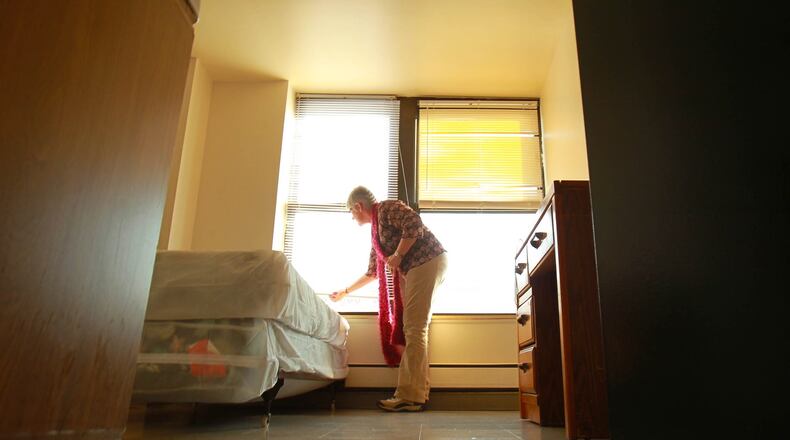The resolutions cover about 567 units found in Northcrest Gardens, Mad River Manor and Asbury Apartments in Dayton, with Albright Apartments and Pinewood Gardens in Trotwood, said Joe Geraghty, executive director of the Dayton-Montgomery Port Authority.
The financial tool in these projects is the inducement resolution, which clears the way for the issuance of tax-exempt bonds.
An inducement resolution can be seen as a first “official action,” indicating a bond issuer’s intent to issue bonds. Such a resolution’s passage determines the point after which the project being financed can be reimbursed for capital costs tied to a project.
“It is I would say a stake in the ground whereby any costs or investments the developer makes post-inducement resolution would be eligible to be put into a tax-exempt bond issuance,” Geraghty said. “It’s like a starting point.”
The developer — whom Geraghty identified as Related Affordable, a subsidiary of The Related Cos., based in New York — plans to purchase and renovate the properties.
As a futher support, the developer intends to apply for low-income tax credits from the Ohio Housing Financing Agency, Geraghty said. If all goes as planned, the acquisition of the properties could close in the third quarter of 2024. The renovation of the apartments would take about a year, wrapping up in late 2025.
The need for affordable housing is felt nationwide. The U.S. Government Accountability Office reported last October that in the previous three years, rents had increased about 24%.
Geraghty believes developers are aware of the need.
“I’m getting some inquiries from other similar-type developers that are looking at building new in our community,” he said. “We’re seeing some activity around this. They would use the Port to be conduit-issuer of tax-exempt financing.”
The amount expected to be invested per unit in these projects would be about $80,000, and the builder will be expected to maintain the current level of affordability for the units, Geraghty said.
He hopes to return to the board of trustees with five specific bond issuances tied to the developments in June or July. After that, capital will be raised on the public markets.
About the Author


